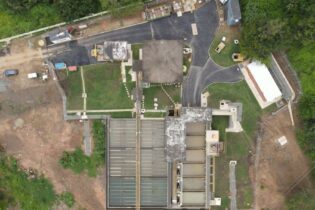“The NCPC-SA’s network of expertise is invaluable in demonstrating successes and assisting companies in exploring new technologies for solutions to waste prevention as a different resource,” says Liz Anderson, executive director and president of the RMPASA
Preventing waste, managing resources Environmental awareness in industry has come a long way in the 10 years that RPMASA (Responsible Packaging Management Association of Southern Africa) has been championing an environmentally-friendly, safe and responsible approach to packaging manufacturing, transport and disposal. It is towards this mission that the National Cleaner Production Centre of South Africa (NCPC-SA) has also been working for the past decade. Established in 2002, the NCPC-SA is a key industrial sustainability programme of the Department of Trade and Industry. It assists industry in preventing waste at source and in managing resources more efficiently along the value delivery chain, utilising resource efficiency and cleaner production (RECP) methodologies and tools. RECP has become the preferred strategy in reconciling the dual needs of economic growth (through competitiveness) and environmental protection (through waste minimisation and efficient resource use). Examples of RECP practices include the following:- improved housekeeping, especially around material flows and maintenance practices
- process modification that may include surface coatings and filtration systems
- product redesign that may include natural material use
- changes to technology that may combine operations that reduce wasteful practices
- input material substitution, for example, substituting a water-based ink for a solvent-based one in printing processes
- on-site recycling, which could mean the recovery of a nickel-plating solution using an ion-exchange unit.
ECONOMICAL AND ENVIRONMENTAL BENEFITS OF RECP |
| Reduced operating costs |
| Improved environmental solutions |
| Increased competitive advantage |
| Improved workplace quality |
| More economical flows of materials |
| Productivity improvement |
| Better compliance with environmental regulations |
| A more positive public profile |






